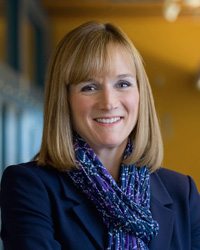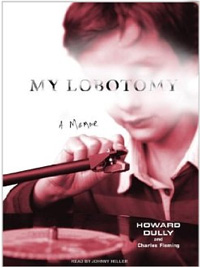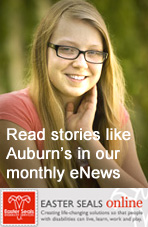An affair to remember!
by Rachel Talen
 Here’s my intern Kelly Zatlin with another guest post.
Here’s my intern Kelly Zatlin with another guest post.
The intern and the red seal
by Kelly Zatlin
It wasn’t that long ago that I was a student at Dordt College in Iowa trying to get an internship at a place with a Marketing and Corporate Relations department. I’ve been here at Easter Seals Headquarters two months now, and I’m amazed at what an absolutely incredible organization it is. I had no idea I would become so passionate about people with disabilities in such a short time. These days my Facebook, Twitter, and Instagram pages display the famous red seal mixed in with touristy pictures of me and my friends gallivanting around Chicago. Easter Seals is probably the number one topic of my social media updates and my personal conversations with friends and family, too. I am now a self-proclaimed Easter Seals advocate, and I will be for the rest of my life. Sometimes I joke that I should just run around the streets of Chicago with a red “Easter Seals #1” foam finger.
When I started my internship back in January, my eyes were immediately opened to the great number of people in this world who have disabilities and are in need of services. I was also exposed to all the things so many people with disabilities are capable of. Easter Seals has the tools and the services to help them, and as a big part of my job I get to read about these people and how they are reaching their full potential every day.
Lately I’ve been working on some projects with the Easter Seals Make the First Five Count campaign, which is all about promoting early intervention for children ages zero to five. Many days at my desk I get to read remarkable success stories about these children who are exceeding in ways their parents and even doctors never imagined possible. Thanks to services at Easter Seals, these kids all over the U.S. are walking, talking, eating, playing, and living lives along with their peers. Oh, but it gets better!
A few weeks ago, I got the chance to meet Maurice Snell, one of Easter Seals’ former national adult representatives, and watch him do an interview live on the air on Chicago’s public radio station, WBEZ. When I met him, I knew immediately why I loved my job and why I loved this organization. Maurice has autism, and he’s accomplished so much: graduating from college, working as an administrative assistant at Easter Seals Therapeutic School and Center for Autism Research, and he’s an expert at public speaking and doing live radio interviews. Now, he’s contemplating getting his master’s degree. Meeting Maurice and then having the privilege to spend quality time with him after the interview was a major highlight of my internship semester so far.
This week, the Marketing and Corporate Relations department here in Chicago held a Make the First Five Count Spokespersons Network and Affiliate Marketing Partners Meeting (try saying that ten times fast). Easter Seals representatives came out from all over the nation to learn more about Make the First Five Count and how to spread the word. It was pretty darn cool to see so many great people gathered together, coming up with new ideas and initiatives to help children who may have disabilities or developmental problems. It was equally inspiring to witness the passion and excitement in the room for what Easter Seals does now and what we can do in the future.
Overall, having this internship at Easter Seals has been one of the most valuable experiences I’ve ever had. Working here may not have been a part of my plan a few months ago … but you know what? Sometimes it’s a great thing when our own plans don’t work out. I’ve learned so much from the smart and dedicated women in my office and I look forward to the rest of my time here at Easter Seals. I think it’s safe to say that I will remain very faithful in this life-long love affair with the red seal.








 I just heard about something very cool happening with a friend of Easter Seals. Eileen Howard Boone, Easter Seals National Board Member and SVP of Corporate Communications and Community Relations for CVS Caremark, has been nominated for the Ad Club’s
I just heard about something very cool happening with a friend of Easter Seals. Eileen Howard Boone, Easter Seals National Board Member and SVP of Corporate Communications and Community Relations for CVS Caremark, has been nominated for the Ad Club’s  A few weeks ago I found myself talking with Erik Cook, one of my colleagues here at Easter Seals, about the books we are reading, and book clubs we belong to now or have belonged to in the past.
A few weeks ago I found myself talking with Erik Cook, one of my colleagues here at Easter Seals, about the books we are reading, and book clubs we belong to now or have belonged to in the past.  Here’s my intern Kelly Zatlin with another guest blog post.
Here’s my intern Kelly Zatlin with another guest blog post. A lot of devices have to be adapted before I can use them. I had to add Braille labels to our microwave, oven and washer/dryer at home so I’d know which button does what. I buy specially-made watches and clocks that say the time out loud for me. And we had to equip my laptop computer at home and my PC at work with a
A lot of devices have to be adapted before I can use them. I had to add Braille labels to our microwave, oven and washer/dryer at home so I’d know which button does what. I buy specially-made watches and clocks that say the time out loud for me. And we had to equip my laptop computer at home and my PC at work with a 